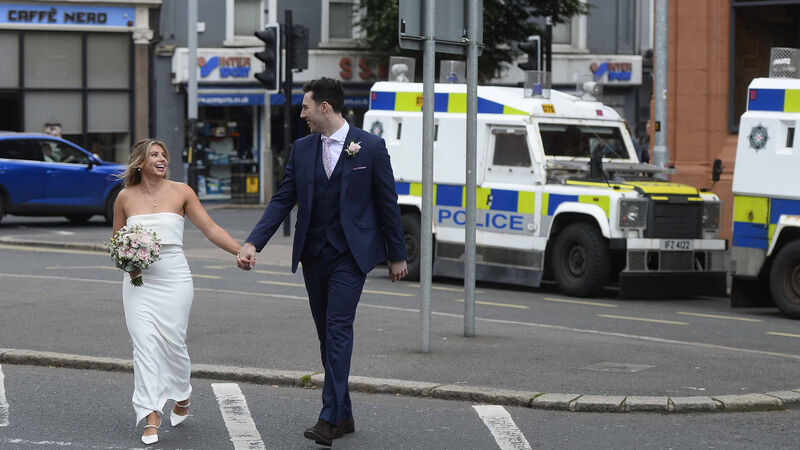'Creep of politics to the right and social media has facilitated violence across Britain'

A newly married couple cross the road as PSNI officers line the streets ahead of two scheduled protests in Belfast city centre. Picture: Mark Marlow/PA Media Assignments/PA Wire
The stealthy but steady creep of politics to the right and social media platforms’ continued unaccountability facilitated the violence that flared across Britain this week, according to a professor of criminology.
Nicola Carr of Nottingham University said that the movement of politics to the right in Britain and the shift in public discourse smoothed the way for the mass riots and unrest.














